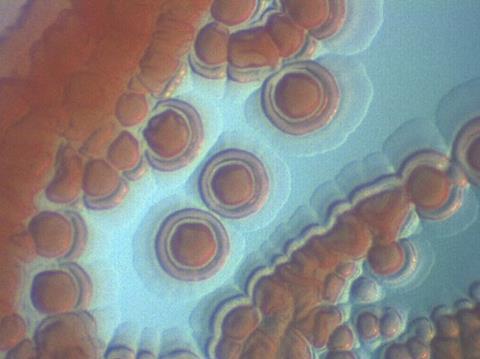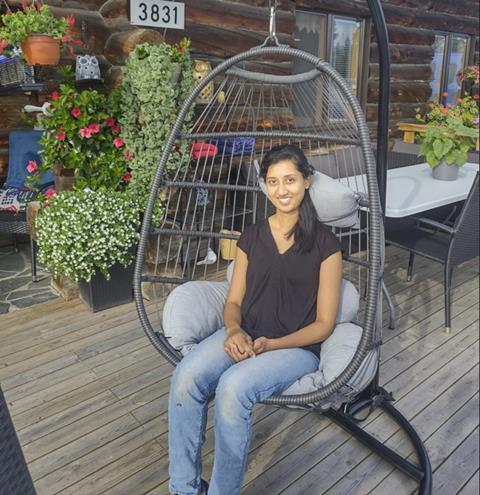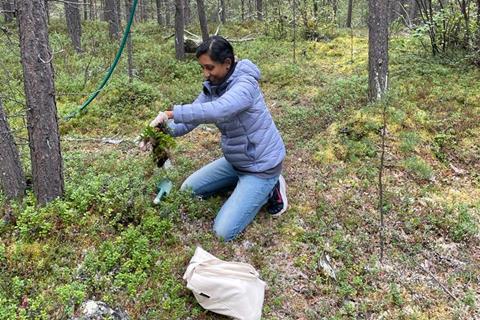The Microbiologist chats with our new Global Ambassador for Finland, Suni Mathew, a senior researcher at the University of Turku who studies the effects of heavy metal pollution on plant-associated microbial communities in Arctic ecosystems.
Following her PhD in molecular biology, on plant gene expressions during abiotic stresses, she was interested in exploring further into plant-microbe interactions. Her postdoc project at University of Jyväskylä and University of Turku focused on the factors determining microbial community compositions and effects of agrochemicals on microbial communities associated with plants and pollinators.

Presently, she is the Principal Investigator of the HeMetAP project (funded by Alhopuro foundation) that studies the effects of heavy metal pollution on plant-associated microbial communities in Arctic ecosystems.
What first sparked your love of microbiology?
I have always been fascinated about molecular processes in plants, but studying more about plants, I came to know more about the role of microbes in plant health and survival. This sparked my interest in microbiology in the context of plant-microbe interactions.
What’s the microbe that most fascinates you and why?
One of my favourite microbes is Methylobacterium genus, because they produce pink colonies on growth medium. I love looking at them, very relaxing. Not only are they beautiful, they are plant-beneficial, boosting plant productivity and stress resistance.

Interestingly, when most plant endophytic bacteria are found intercellularly, a species of Methylobacterium, M. extorquens is found intracellularly near the nucleus of cells in Scots pine. So all these make them very interesting to me.
What’s the best career advice you’ve ever been given?
Research in molecular biology is a slow and gradual process, often without immediate results or significant leaps in progress. When I was doing my PhD, I would be disappointed in not seeing progress. So my supervisor told me to note down work done each day and time spent to do it for a week. When I did that I could actually see the efforts I put in and see that I was actually progressing towards my goal little by little every day.

I still follow it to this day and take time every now and then to review and reflect work done, helping me to stay on track, get new ideas and when I need a self-boost to convince myself that I am progressing my research.
What real-world problem would you eventually love to solve with microbiology?
I love to contribute to boosting plant productivity using microbes, to find alternatives to the currently heavily chemical-dependent technologies.
What keeps you awake at night?
How can I contribute to global sustainability? How much more should my lifestyle improve to reduce my carbon footprint? How can I raise awareness about present global challenges? How can my research on microbes be accelerated to bring real solutions?
What do you do to relax in your spare time?
Reading books, watching movies, playing with my kids

Why did you apply to become a Global Ambassador and what would you like to do in your new role?
I see being a global ambassador at AMI as an outreach opportunity to give back to the science community, communicate research to the fraternity, a platform to make students and early-career researchers realize the importance of being part of science societies and meet new people. My primary focus in my new role is to publicise AMI to Finnish microbiologists and students, form a collaborative community and prioritize the importance of communicating science.
Suni Mathew is a Senior Researcher at the University of Turku in Finland - suni.mathew@utu.fi







No comments yet